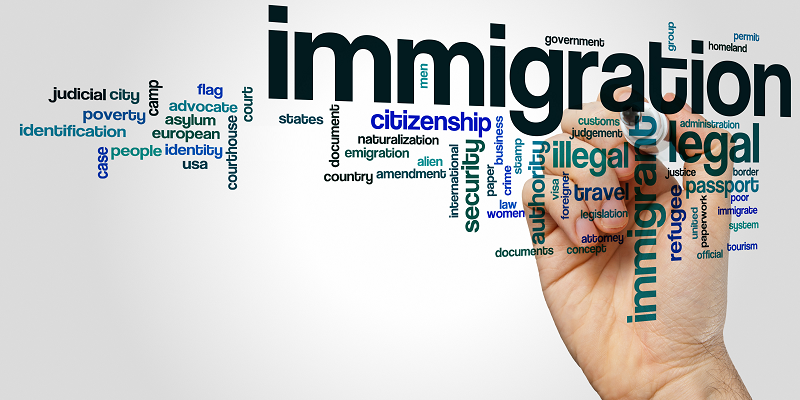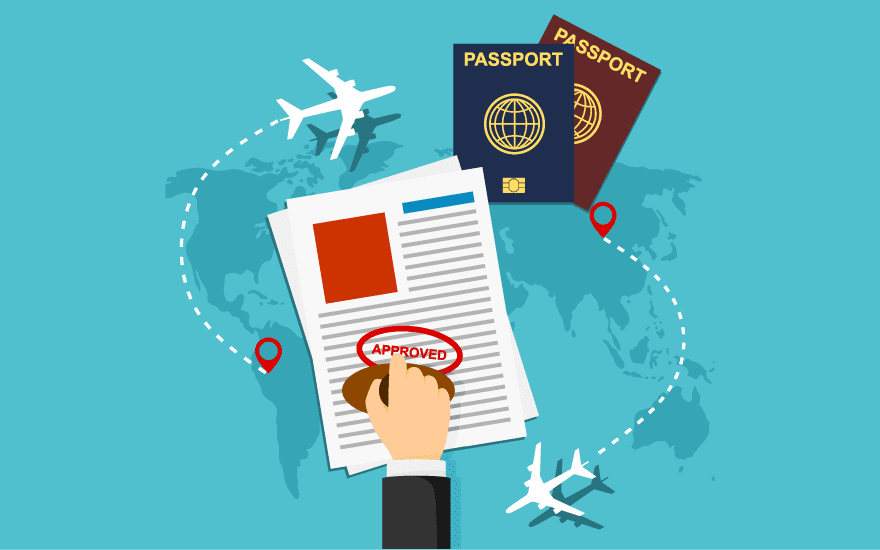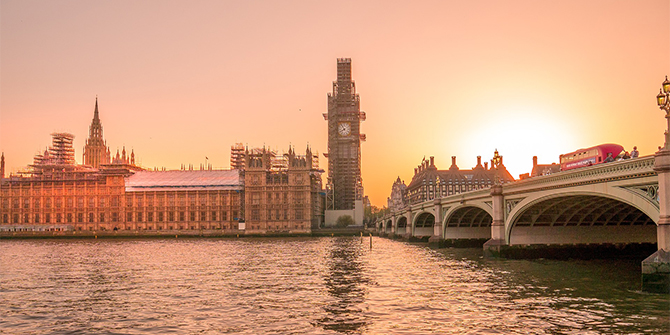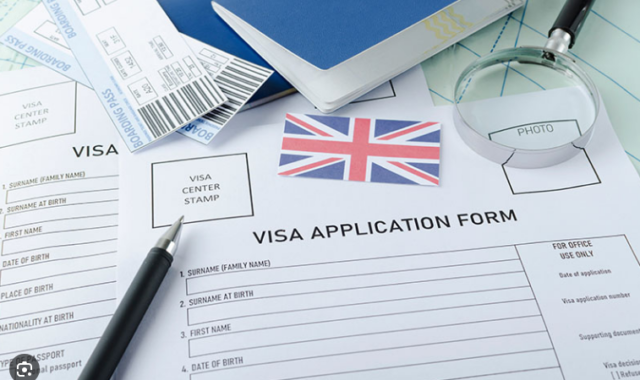The United Kingdom (UK) has long been one of the most attractive destinations for people from all over the world, whether they are seeking to live, work, study, or join family members.
The British immigration system is governed by a range of rules, visa categories, and eligibility requirements designed to ensure that those who move to the UK do so in accordance with immigration laws. With the introduction of a points-based immigration system post-Brexit, the rules for entry into the UK have changed significantly, making it crucial for potential immigrants to understand how the system works.
In this comprehensive guide, we will explore the British immigration system, detailing the different visa types, the rules for each category, and the requirements applicants must meet. Additionally, we will discuss the application process and key challenges that people may encounter during their journey to living in the UK.
Ready to apply for your UK Visa?
Click the button below to start your simple and secure visa application process.
🇬🇧 APPLY UK ETA VISA HEREAn Overview of the British Immigration System
The UK immigration system has evolved over time, with major changes implemented following the UK’s exit from the European Union (Brexit). The key shift in the immigration landscape is the introduction of a points-based system, which treats European Union (EU) and non-EU nationals equally when applying for most types of visas.
In general, the UK immigration system is divided into two broad categories:
- Immigration for work
- Immigration for family, study, and other purposes
To gain entry to the UK, individuals from outside the UK and Ireland must apply for a visa unless they are from a visa-exempt country.
Why People Immigrate to the UK
The UK is a highly desirable destination for immigration due to its diverse economy, high living standards, and world-renowned education system. Many people move to the UK for various reasons, including employment opportunities, as the country is home to numerous multinational companies and offers a wide range of jobs across different sectors.
Education is another significant draw, with top universities like Oxford and Cambridge attracting students from around the world. Family reunification is also a common reason, as individuals often move to join family members already living in the UK. Additionally, the UK provides a high quality of life with excellent healthcare, education, and social services. For investors and entrepreneurs, the UK’s stable and thriving economy presents attractive opportunities for growth and success.
The Points-Based Immigration System
The introduction of the points-based immigration system has made it necessary for applicants to meet specific criteria based on their skills, salary, and proficiency in the English language. Under this system, applicants are assigned points for various factors such as job offers, skills, salary thresholds, and English language proficiency.
They must score a set number of points to qualify for a visa. Also, the points-based system has replaced the Tier 2 (General) visa route with the Skilled Worker visa.
Key Requirements Under the Points-Based System
- Job Offer from a Licensed Sponsor: Applicants must have a valid job offer from an approved UK employer who is licensed to sponsor workers.
- Salary Threshold: Applicants need to meet a minimum salary threshold. For most skilled worker visas, the salary threshold is set at £25,600 per year or £10.10 per hour. However, for some roles, a lower salary threshold is allowed.
- English Language Proficiency: Applicants need to demonstrate their proficiency in English, usually through a language test approved by the UK Home Office, such as IELTS or TOEFL.
- Job Skill Level: The job offer must be for a position that requires a certain level of skill, usually equivalent to RQF Level 3 or higher.
- Education and Experience: Applicants with higher educational qualifications and relevant work experience may earn additional points.
If applicants meet the necessary requirements, they can apply for a visa to enter and work in the UK.
Different Types of Visas Under the Points-Based System
Work Visas
One of the most common reasons for immigration to the UK is to seek employment. The UK offers various types of work visas depending on an applicant’s qualifications, experience, and the type of employment they are seeking.
1. Skilled Worker Visa
The Skilled Worker Visa is the most common work visa. To qualify for this visa, applicants must have:
- A job offer from an approved UK employer.
- A role that meets the required skill level.
- A salary that meets the minimum salary threshold or is in line with the role’s requirements.
This visa allows individuals to live and work in the UK for up to 5 years, with the possibility of extending their stay or applying for permanent settlement (Indefinite Leave to Remain).
2. Global Talent Visa
- Be endorsed by a recognized UK organization.
- Show a proven track record of exceptional skills in their chosen field.
3. Intra-Company Transfer Visa
4. Start-Up Visa
The Start-Up Visa is designed for entrepreneurs who wish to establish a business in the UK. To qualify, applicants must:
- Have a viable business idea that is endorsed by an approved UK organization.
- Prove that the business is innovative and has the potential for growth.
This visa provides an excellent opportunity for international entrepreneurs to launch their businesses in the UK.
Student Visas
The UK is home to many prestigious universities, making it a prime destination for international students. To study in the UK, foreign nationals must obtain a Student Visa.
Eligibility Criteria for a Student Visa
- Offer from a Licensed Sponsor: Applicants must have an offer from a UK educational institution that is on the list of licensed sponsors.
- Financial Support: Applicants must demonstrate that they have sufficient funds to cover tuition fees and living expenses during their studies in the UK.
- English Language Proficiency: Applicants need to meet the required English language proficiency standards.
- Full-time Study: The course being studied must be full-time.
Family Visas
Family reunification is an important aspect of the UK immigration system. The UK offers family visas for spouses, partners, children, and other dependent family members who want to join relatives living in the UK.
1. Spouse and Partner Visas
To apply for a Spouse Visa, applicants must be:
- Legally married to or in a civil partnership with a UK citizen or settled person.
- In a genuine relationship, with evidence such as shared finances and cohabitation.
The partner or spouse sponsoring the applicant must meet the financial requirement of £18,600 per year to ensure they can support their partner.
2. Child Visas
Children of UK citizens or settled persons can apply to join their parents in the UK. To qualify, applicants must be:
- Under 18 years of age.
- Dependent on their parents for financial and emotional support.
3. Parent and Other Dependent Relative Visas
Parents of UK citizens or settled individuals may be able to join their children if they meet specific dependency criteria. Additionally, other family members, such as elderly parents or grandparents, may be able to apply if they can prove their dependence on their UK-based relative.
Visitor Visas
For those who wish to visit the UK for short-term purposes, the Visitor Visa is an option. This visa is typically granted for up to 6 months for tourism, business, or family visits.
Visitors cannot work or access public funds while in the UK, and they must demonstrate that they intend to return to their home country after their visit.
Refugee and Asylum Status
The UK provides protection to individuals fleeing persecution in their home countries through the Asylum Process. Applicants seeking asylum must:
- Arrive in the UK and apply for asylum status.
- Provide evidence that they face a well-founded fear of persecution based on their race, religion, nationality, or other protected characteristics.
If successful, asylum seekers may be granted refugee status and the right to live and work in the UK.
Settlement and Indefinite Leave to Remain (ILR)
Once an individual has lived in the UK for a specified period on a valid visa, they may be eligible to apply for Indefinite Leave to Remain (ILR). ILR allows individuals to stay in the UK without any time restrictions and provides a pathway to British citizenship.
The general residency requirement for ILR is 5 years, although this may vary depending on the visa category. Applicants must also pass the Life in the UK Test and meet specific language proficiency requirements.
Application Process for UK Visas
The process of applying for a UK visa typically involves the following steps:
- Determine the correct visa category: Determine the visa category based on your purpose of entry into the UK.
- Submit an online application: Most UK visa applications are submitted online through the official government website.
-
- Provide supporting documents: Submit all required documents, such as proof of identity, financial support, and relevant qualifications.
- Wait for a decision: Visa processing times vary depending on the visa category, but applicants will generally receive a decision within 8 to 12 weeks.
- Receive your visa: If successful, applicants will receive their visa and can make arrangements to travel to the UK.
How Can Applicants Keep Up with UK Immigration News and Updates?
Applicants can stay informed about UK immigration news and updates through various sources, including:
- Gov.UK website: The official government website provides up-to-date information on immigration policies, procedures, and changes.
- Immigration law firms and consultants: Seeking advice from an immigration law firm or consultant can help applicants understand the latest developments in UK immigration.
- Social media platforms: Following relevant government agencies and organizations on social media can provide quick updates on changes to UK immigration policies.
- News outlets: Keeping up with current affairs and reading news articles related to UK immigration can also help applicants stay informed.
It is essential for individuals applying for a UK visa to regularly check for any updates or changes that may affect their visa application. Staying informed can help applicants prepare the necessary documents and meet the requirements for a successful visa application.
Do You Really Need Professional Help When Applying for a UK Visa?
While it is not mandatory to seek professional assistance when applying for a UK visa, it can be beneficial in many cases. Immigration lawyers help choose the right visa, prepare applications, and ensure you submit all required documents.
Furthermore, changes to UK immigration policies can occur at any time, so having access to up-to-date information and expert advice can increase the chances of a successful visa application.
Overall, seeking professional assistance may save applicants time and effort in navigating the complex process of applying for a UK visa. So if you want to make your journey hassle-free then seeking professional help would be a good decision. This will also help to ensure that your application is prepared accurately and has the best chance of being approved.
FAQs
What is the salary threshold for a UK Skilled Worker Visa?
The general salary threshold for the Skilled Worker Visa is £25,600 per year or £10.10 per hour. However, this can vary depending on the occupation and whether the job is listed as a shortage occupation.
Can I apply for permanent residency after holding a UK work visa?
Yes, you can apply for Indefinite Leave to Remain (ILR) after living in the UK for 5 years on a valid work visa, provided you meet the eligibility requirements.
How long can I stay in the UK on a Visitor Visa?
A standard Visitor Visa allows you to stay in the UK for up to 6 months. It is intended for short-term visits, such as tourism, business, or family visits.
Can I bring my family with me when applying for a work visa?
Yes, you can bring your spouse, children, or other eligible dependents with you when applying for a work visa, provided you meet the necessary requirements, such as financial support.
Conclusion
Understand immigration rules, visa types, and requirements for a successful UK application. Each visa route has specific eligibility criteria. The points-based system offers various opportunities for work, study, or family relocation.
By carefully researching and following the correct procedures, you can successfully navigate the British immigration system and take the next step in your journey to living, working, or studying in the UK.
Need to understand the British immigration system? VisaETA UK has you covered!
Get a complete overview of visa categories, requirements, and application processes to make your move to the UK smooth and stress-free.
Learn more today at visaeta.uk!







